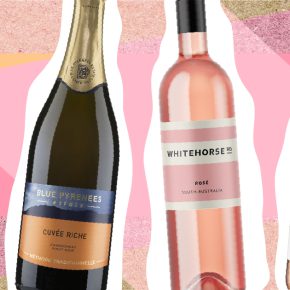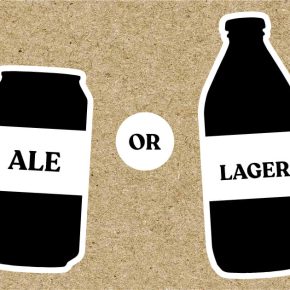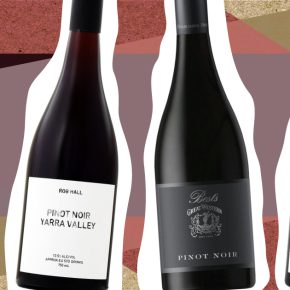Bottling by Beethoven
– Organic, Biodynamic & Vegan Wines – What does it all mean?!
On a sunny day a few years ago I was lucky enough to cycle around Marlborough in New Zealand experiencing all the iconic wine region has to offer. I had been fortunate enough to be invited out to visit a few wineries in the middle of harvest to see the process first hand and learn about the different approaches, different methods that wineries can undertake to get juice in bottles. New Zealand was pioneering in the sustainable, organic production of grapes and with emergence of more biodynamic wineries in the region this made Marlborough a great place to visit and learn all about these practices. One of the wineries on our agenda adheres to biodynamic practices, and I couldn’t wait to drill down in to that and see what it meant. My working theory was wine by witchcraft, but I was sure there had to be more to it!
So let’s start at the beginning. Step one on this journey of understanding is Vegan Friendly Wines.
Vegan Wine
All wine should be vegan friendly shouldn’t it? After all, it’s just grape juice and yeast… Well, not quite. Wines are often fined with milk, egg or fish products, making them not suitable for people who follow a vegan or vegetarian lifestyle. Fining is a process to give wines the clean, clear appearance we are used to and while not essential to the wine, most winemakers will strive for it. To best explain it, think of a glass of cloudy apple juice next to a glass of clear apple juice.
Milk, egg or fish products can be used to bind together the impurities in the wine, either consuming them entirely or causing them to bind together and fall to the bottom of the tank where they can be filtered out.
With emerging technology, better understandings and more and more winemakers willing to challenge the norm, more wines are now being produced without using these fining agents.
But how can you tell?
Changes in the labelling laws in 2002 now REQUIRE wineries to declare if any possible allergens were used in the production of the wine, therefore if there is no mention of milk, egg or fish products on the label then you can be confident in selecting the wine as vegan. It’s also increasingly more prevalent to see the ‘Certified Vegan’ symbol on the label as it’s widely accepted in society and no longer a dirty word.
Next Stop, Organic Wine
All wine should be vegan friendly shouldn’t it? After all, it’s just grape juice and yeast… Well, not quite. Wines are often fined with milk, egg or fish products, making them not suitable for people who follow a vegan or vegetarian lifestyle. Fining is a process to give wines the clean, clear appearance we are used to and while not essential to the wine, most winemakers will strive for it. To best explain it, think of a glass of cloudy apple juice next to a glass of clear apple juice.
Milk, egg or fish products can be used to bind together the impurities in the wine, either consuming them entirely or causing them to bind together and fall to the bottom of the tank where they can be filtered out.
With emerging technology, better understandings and more and more winemakers willing to challenge the norm, more wines are now being produced without using these fining agents.
But how can you tell?
Changes in the labelling laws in 2002 now REQUIRE wineries to declare if any possible allergens were used in the production of the wine, therefore if there is no mention of milk, egg or fish products on the label then you can be confident in selecting the wine as vegan. It’s also increasingly more prevalent to see the ‘Certified Vegan’ symbol on the label as it’s widely accepted in society and no longer a dirty word.
Finally, Biodynamic Wine
Biodynamic farming is strictly guided by the cycles of the moon, broken down in to four periods – Fruit Days, Root Days, Flower Days and Leaf Days. Treating the vineyards as a living organism, all consideration is given to soil, environment and conservation. As with organic methods, there are no herbicides, pesticides or fungicides. No chemicals. Biodynamic farming uses 9 Biodynamic Preperations (BD’s) specially made with the environment in mind. And I can tell you, witchcraft or not, it was an amazing experience!
Cycling up the driveway the was noticeably more activity around this vineyard than any other I had visited that day. More birds I the air. Sheep grazing under vines. Horses in the paddock that I later found out were to pull the cart during harvest to move the picked grapes to the winery. No tractors here.. I also found out the horse had a sweet tooth and consequently ate one third of the Riesling crop before they had a chance to harvest! There was a beehive tucked down the back of the property, pigs, vegie gardens, communal kitchen, chickens (staff were welcome to take the eggs, so long as they bought the shells back to be used onsite).. It was holistic, beautiful in its authenticity, and yes, when we walked through the sheds and got to the bottling line (by hand, of course!) they were playing Beethoven for the wine. Because why not!
Biodynamic farming was best described by Rudolf Steiner in the early 1900’s who gave 9 lectures on the practice and is known as the father of Biodynamic practices as “a spiritual-ethical-ecological approach to agriculture, gardens, food production and nutrition.”
The Latest News
Our locations
Wendouree
3/918-920 Howitt Street
Wendouree VIC
3355
Mt Clear
14 Whitehorse Rd
Mt Clear VIC
3350
Alfredton
1763 Sturt St
Alfredton VIC
3350






